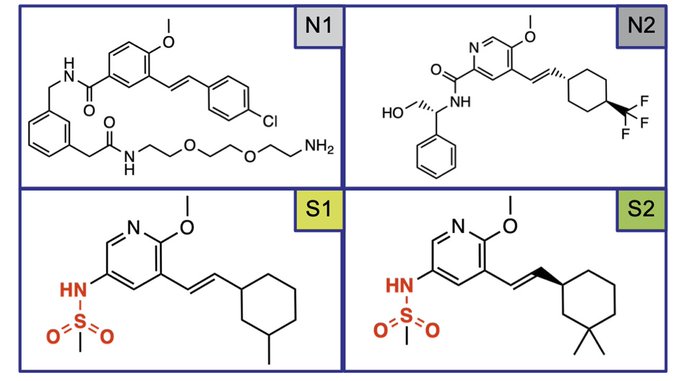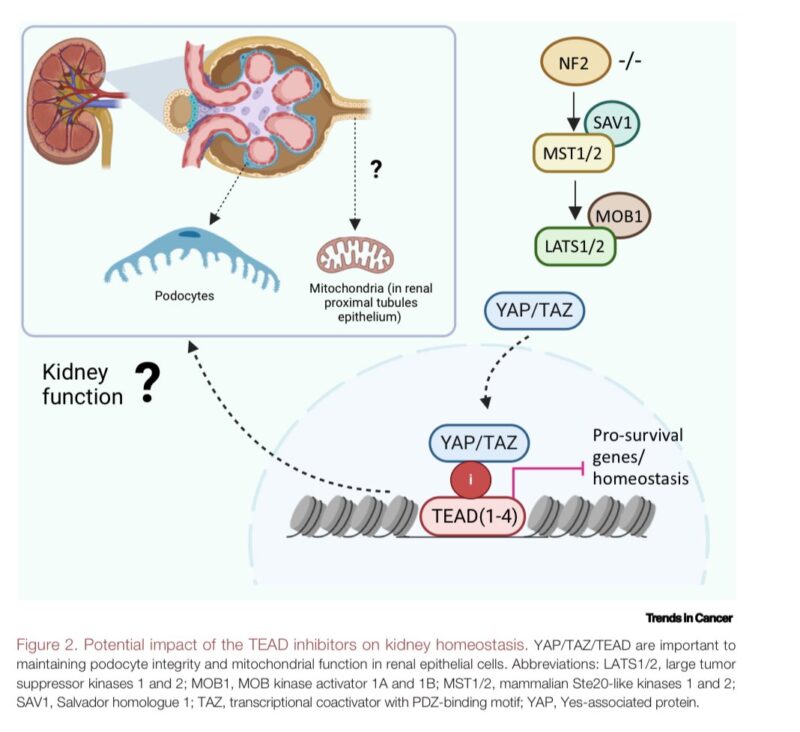
Regulating the Hippo pathway with the New class of TEAD small molecule inhibitors
Anirban Maitra shared a post on X:
“And right on cue!
Preprint from Genentech on a new class of TEAD small molecule inhibitors that act via distinct mechanism, by promoting the repressive TEAD-VGLL4 interaction TEAD-targeting small molecules induce a cofactor switch to regulate the Hippo pathway.
TEAD-targeting small molecules induce a cofactor switch to regulate the Hippo pathway
Authors: Alissa D. Guarnaccia, Thijs J. Hagenbeek, Wendy Lee, Noelyn Kljavin, Meena Choi, Gözde Ulas, Vasumathi Kameswaran, Daniel Le, Sayantanee Paul, Samir Vaidya, Jason R. Zbieg, James J. Crawford, Bence Daniel, Anwesha Dey, Jennie R. Lill.


Important Open Access perspective from Anwesha Dey and colleagues Genentech in Trends in Cancer as this class of agents become relevant in various oncology settings:
Targeting the Hippo pathway in cancer: kidney toxicity as a class effect of TEAD inhibitors?
Authors: Sayantanee Paul, Jessica Sims, Trang Pham,


Anirban Maitra serves as Professor of Pathology and Translational Molecular Pathology at UT MD Anderson Cancer Center since August 2013, and directs the Sheikh Ahmed Pancreatic Cancer Research Center. He leads an NCI-funded laboratory dedicated to pancreatic cancer research, focusing on genetics and molecular pathology in human and mouse models. His research aims to advance early detection and interception strategies to enhance patient survival rates in pancreatic cancer.
-
Challenging the Status Quo in Colorectal Cancer 2024
December 6-8, 2024
-
ESMO 2024 Congress
September 13-17, 2024
-
ASCO Annual Meeting
May 30 - June 4, 2024
-
Yvonne Award 2024
May 31, 2024
-
OncoThon 2024, Online
Feb. 15, 2024
-
Global Summit on War & Cancer 2023, Online
Dec. 14-16, 2023
